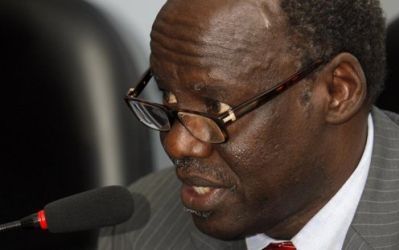South Sudan opposition leader calls to enhance national unity and democratic transition
September 20, 2012 (PARIS) – South Sudanese opposition SPLM- Democratic Change (SPLM-DC) leader, Lam Akol, reiterated his call for dialogue to enhance national unity and to work together for a democratic transition in the new country.

The SPLM-DC, which is the sole opposition party to have some 6 members in the national parliament, was seen in Juba since its inception in 2009 as an emanation of Khartoum. It was also accused of having an armed militia.
But the main opposition party strongly denied both accusations saying that Juba wanted to make the SPLM-DC a scapegoat for its failure to achieve the aspiration of South Sudanese for peace and development and accused the ruling party of corruption and tribalism.
“The Comprehensive Peace Agreement (CPA) has two objectives; sustainable peace, even if it leads to divide the country, and democratic transformation,” Akol said. He further regretted that the independence of South Sudan did not allow to bring peace between or in the two new entities where there is no democratic regimes.
“We have two countries with one system,” he stressed.
Akol, who challenged Salva Kiir for the South Sudanese presidency in April 2010 general elections, met with the latter on 29 September 2011 in Nairobi where they agreed on his return to Juba and to continue dialogue over unity in diversity and democratic governance .
The opposition leader said he left the country after two months, in December 2011, because after three meeting they had in Juba he felt that the SPLM leadership was not seriously willing to undertake democratic reforms.
“I realised that his colleagues were not favourable (to such reforms) and I said OK we are ready to resume discussions whenever you are ready,” he said.
However, Akol said that SPLM-DC, together with the other opposition parties, is still open for dialogue with the governing party to build a united South Sudan living in peace and harmony with its neighbours.
The SPLM-DC calls for a federal state in South Sudan to achieve “unity in diversity” and to promote peaceful coexistence between the different tribal components of the country.
Asked about the relations between Juba and Khartoum, Akol said today relations between the two countries are “complicated” particularly after the UN Security Council Resolution 2046 related to the settlement of outstanding issues.
He said the two countries need to stop their support to rebel groups, demarcate the border, agree on Abyei referendum, and organise commercial relations.
He stressed that there are historical relations between five states in the South Sudan with their Sudanese neighbours who used since long time to deal with each others.
He pointed out that “what is happening (now) is not normal”, adding that political differences affect the traditional coexistence between people from two sides. But he expressed hope that the future will allow to overcome these differences like France and Germany who are now the pillar of Europe after long years of animosity.
The former Sudan’s foreign minister said, external relations of the new country should be based on the “mutual interest” warning that rapprochement with Tel Aviv should not be at the expense of relations with the Arab World.
He said that Arabs countries and movements like Libya and Palestinians were the first to support the SPLM since its inception. He also spoke about development and recovery projects offered to the south Sudan by Arab countries like Egypt, Kuwait, UEA in the past and present years.
(ST)
